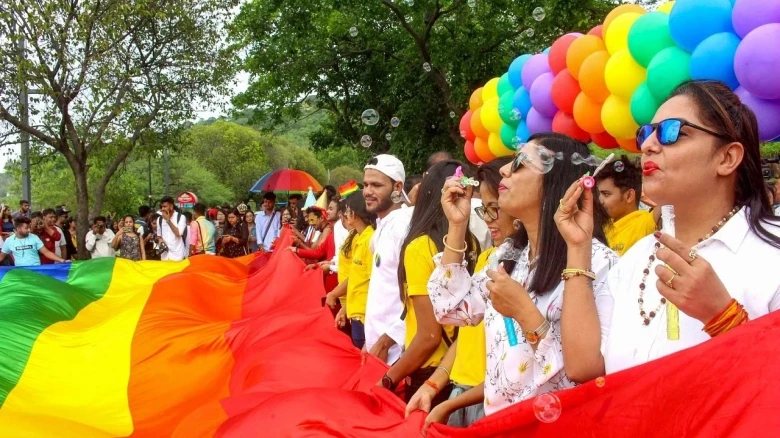Regional

A new Pew Research Centre survey found that 53 per cent of adult Indians support...
Digital Desk: A new Pew Research Centre survey found that 53 per cent of adult Indians support legalising same-sex marriage.
Among those who support such a union, 28% strongly support it and 25%' somewhat support' the move. On the other hand, 43% of Indian adults 'completely oppose' such marriages, 31% 'strongly oppose' it, and 12%' somewhat oppose' the move.
The findings come from the most recent Pew Research Centre survey, which was conducted in 24 countries between February 20 and May 22 of this year to see how people perceive same-sex marriage.
As for India, the survey results can be a boost for same-sex couples and those who support their cause, as a majority of adult Indians (53%) support legalising same-sex marriages. The case is currently before the Supreme Court, where a five-judge panel is hearing it. However, the Union government has opposed legalising same-sex marriages, claiming that it violates Indian culture and the heteronormative structure of sexual relations. In India today, homosexuality is legal; however, marriage between two homosexual adults is still illegal.
Globally, support for legal same-sex marriage is highest in Sweden (92% of adults accept it) and lowest in Nigeria (2%). The survey took into account and documented sentiments across a wide range of demographic criteria, including age, gender, political ideology, and whether or not respondents regarded religion as significant in their lives.
In terms of worldwide geography, people in Western Europe stand out as firm supporters of same-sex marriage. At least eight out of ten adults in Sweden (92%), the Netherlands (89%), Spain (87%), France (82%), and Germany (80%) support it. Same-sex marriages are legal in each of these countries.
On the other hand, only 41% of adults in Poland and 31% in Hungary support same-sex marriages. Same-sex marriage is illegal in both of these European countries, and groups advocating for LGBTQ+ rights are frequently persecuted by the authorities.
In North America, about eight in ten Canadians (79%) support same-sex marriage, as do 63% in both the United States and Mexico. Same-sex marriage is allowed in all three nations. In South America, 67% of Argentinians and 52% of Brazilians support the freedom of gay and lesbian couples to marry. Both countries have legalised homosexual marriage.
In Asia-Pacific, over three-quarters of respondents in Australia (75%) and Japan (74%) support legal same-sex marriage. Japan has yet to legalise same-sex marriage, although Australia has. Same-sex marriage is illegal in South Korea, and the subject is making headlines. In South Korea, 40% support legal same-sex marriage, while 59% oppose it. The legalisation of same-sex marriage is strongly opposed by Indonesians. Only 5% of Indonesians are in favour of same-sex marriage.
The survey also found that in 12 of the countries questioned, those under 40 are more likely than senior people to accept homosexual marriage. In other countries, however, there are no such big age differences.
The legalization of homosexual and lesbian marriage was also backed more often by women than by men in 14 of the world's countries. People with more formal education are more likely than those with less education to support allowing homosexuals and lesbians to marry in 17 of the studied countries, according to the report.
The study findings for India also challenge the Bar Council of India's (BCI) claim that "more than 99.9% of people in the country are opposed to the idea of same-sex marriage." The BCI said that the statistics it released were based on its own survey. However, it has never released a survey report outlining methodology, sample size, or any other data points.
Noting that there is strong opposition (99.9%) to legalising same-sex marriage, it passed a resolution prohibiting the apex Court from hearing cases involving same-sex marriage. In keeping with the government's position, the BCI had requested that the apex Court refrain from hearing the petitions seeking to legalise same-sex marriage, calling it "highly inappropriate." It had rather said that the subject of marriage equality between heterosexual and homosexual couples will be decided by legislation.
Leave A Comment